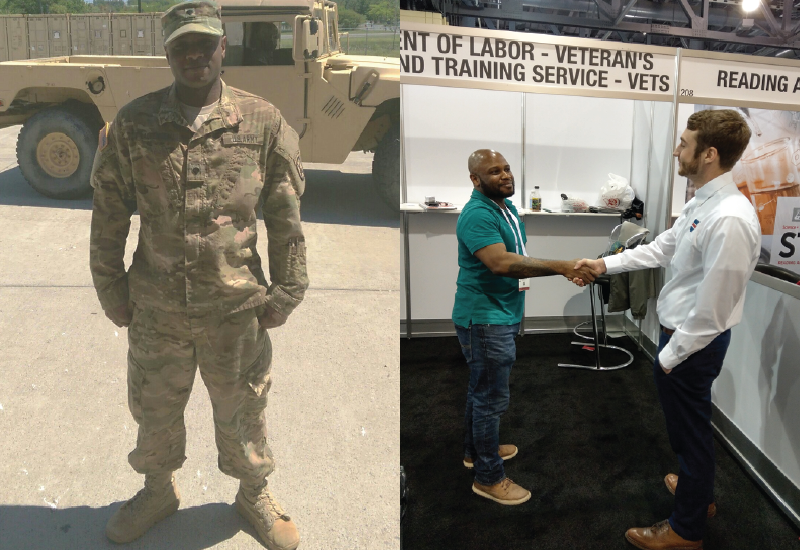Reginald Laurenceau joined the U.S. Army in 2014 with the intent of making it a career. He was an infantry soldier who served with the 10th Mountain Division at Fort Drum, New York. Born in Haiti and raised in New England, Laurenceau’s dream of being a long-time soldier ended abruptly in 2016 when he was diagnosed with a disqualifying medical condition. Faced with the uncertainty of a medical discharge, he scrambled to find the next step in his path.
Laurenceau enjoys being challenged, so he decided to use his G.I. Bill benefits to attend Rutgers University, where he started studying political science in January 2017. Laurenceau knew he wanted to pursue a career in the government but was unsure what he should do next to prepare for a civil service position.
At a Rutgers-hosted career fair for students, Laurenceau met a Department of Labor Veterans’ Employment and Training Service (VETS) employee who was looking for students to fill internships and work-study opportunities. LaCarole Faulkner, a veterans program specialist for the Philadelphia region, was specifically seeking student veterans to help them gain valuable experience within the civilian workforce.

His interest piqued, Laurenceau immediately signed up for the work-study. Two weeks later, he was working with Faulkner while attending college full-time. Over the next couple of years, Faulkner mentored Laurenceau as she supervised his work-study, giving him pertinent tasks relevant to a career in government service. His work focused heavily on Freedom of Information Act requests for the Philadelphia regional office, and that challenging work not only helped him gain the experience he needed to obtain a government position, but helped him develop valuable critical thinking skills.
As part of his work-study, Laurenceau also represented the agency at career fairs. Now on the other side of the table, he discovered that veterans often struggle to find work after they leave the military. He would tell transitioning service members and veterans to reach out to VETS, where they’d find that many people want to help them through the transition. He prided himself in helping build awareness of the employment resources available to veterans.
“Working directly with veterans was the most rewarding part of the experience,” said Laurenceau.
These experiences gave Laurenceau the foundation he needed to become a government information specialist for the Food and Drug Administration (FDA), working on FOIA requests. His training from the VETS work-study gave him the tools necessary to succeed in his current position. When the FDA hiring manager called Faulkner to discuss Laurenceau’s interview, she said, “Your agency has done a terrific job preparing him.”
As Faulkner reflected on her time working with Laurenceau, she said “Before his college graduation, my leadership and I worked with him periodically to prepare him for employment. We did resume reviews and mock interviews to build his confidence." He is a shining example of a student veteran who used our internships and work-study opportunities to find meaningful employment.
If you are a veteran, transitioning service member, military spouse or caregiver, we can help you reach your employment potential.
Laurel Devine is the communications director of U.S. Department of Labor's Veterans’ Employment and Training Service.

 U.S. Department of Labor Blog
U.S. Department of Labor Blog